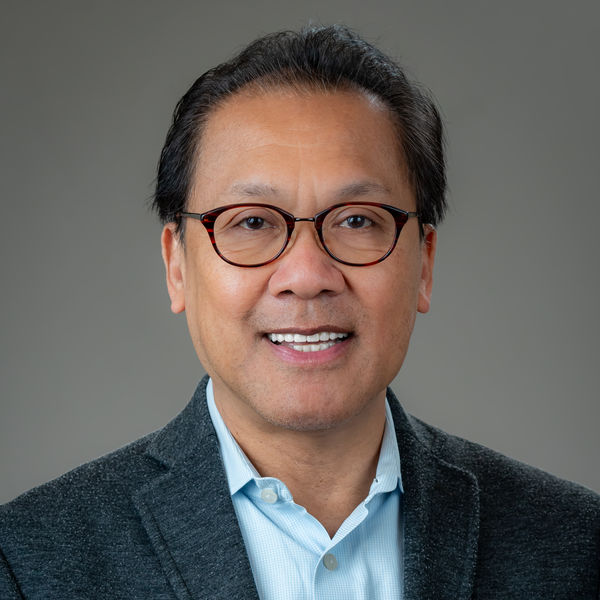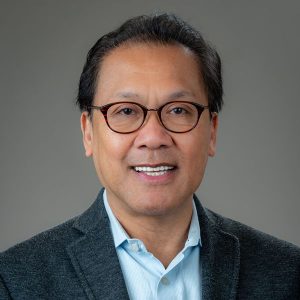Accelerating Gender Equality in the Digital Age: Leveraging WSIS+20 Milestones and Beyond

Accelerating Gender Equality in the Digital Age:
Leveraging WSIS+20 Milestones and Beyond
Intervention by Liberato Bautista
March 20, 2025 | 13:15 -14:30 EST | UN HQ New York
Excellencies, ladies and gentlemen:
- Thank you so much, Gitanjali, for inviting me to speak at the upcoming ITU event: “Accelerating Gender Equality in the Digital Age: Leveraging WSIS+20 Milestones and Beyond.” I also appreciate Caitlin’s thoughtful question about how civil society organizations can play a role in advancing and advocating for gender equality, especially in the digital world, and the steps we can take to support their efforts in this important area.
- I want to emphasize that the extensive preparations for the meaningful involvement of civil society in CSW69 have been supported by the NGO CSW Forum. This achievement results from the perseverance and dedication to gender equality and inclusion demonstrated by the NGO Committee on the Status of Women in New York, which organized both the Forum and the NGO Consultation, with the participation of the NGO CSW in Vienna and Geneva. NGO CSW New York is one of more than 30 NGO committees based in New York, Geneva, and Vienna that focus on specific geographic and thematic issues within the multilateral agenda, overseen by various United Nations agencies, especially the UN Commission on the Status of Women.
- Numerous side events offered through the NGO CSW website focused on issues of digital and communications justice. Just over an hour ago, I spoke at a side event co-organized by the Permanent Mission of Romania, Soroptimist International, and CoNGO, which focused on the evolving nature of violence against women, with technology playing an increasingly important role.
- I wish to emphasize the importance of CoNGO’s focus on information and communication technologies (ICTs) and, more recently, artificial intelligence (AI) in all aspects of human life and our planetary existence. This emphasis is not entirely new, although it continues to develop with each technological advancement. CoNGO actively participated in the Geneva (2003) and Tunis (2005) conferences of the World Summit on the Information Society. Since those events, CoNGO has been involved in the WSIS Forum and subsequent High-Level Event Forums. We now anticipate the collaboration fostered by the historic WSIS and the emerging Global Digital Compact.
- In December 2010, the Under-Secretary-General of the United Nations Department of Economic and Social Affairs (DESA) held an “Open Consultation on the Process Toward Enhanced Cooperation on International Public Policy Issues Pertaining to the Internet.” At that time, civil society organizations acknowledged “the need to initiate and reinforce, as appropriate, a transparent, democratic, and multilateral process involving governments, the private sector, civil society, and international organizations in their respective roles. This process could envision a suitable framework or mechanisms, where justified, to stimulate the ongoing and active evolution of current arrangements to synergize efforts in this regard.”
- It is essential to recognize ECOSOC Resolution E/Res/2024/13 for acknowledging the WSIS Process and its open, multistakeholder consultations, which have led to achievements, key trends, challenges, and opportunities related to the World Summit action lines aimed at reaching the Sustainable Development Goals. Currently, initiatives similar to those within the scope of WSIS must address the growing concern about the digital divide and its deep connection to gender and economic disparities.
- This is precisely what CoNGO and Soroptimist International did on March 8, 2025, during International Women’s Day (IWD). Together with 124 NGOs worldwide, 99 of which hold ECOSOC consultative status, we declared, “While some progress has been made, the harsh reality remains three decades later. Violence against women and girls continues to be a global emergency, with one in three women worldwide facing some form of physical, psychological, emotional, economic, or sexual violence during their lifetime. Addressing this crisis requires confronting systemic violence and dismantling harmful, deeply rooted gender norms in both public and private spheres, online and offline. In today’s digital age, the misuse of technology, including artificial intelligence (AI), worsens the dangers that women and girls face daily… The future of information and communication technology (ICT), including digital and AI systems, must emphasize inclusivity, ethical issues, and the diverse needs of all women, girls, and marginalized groups. Creating and implementing these systems to ensure equal representation of women and girls in technological development will produce ICT and AI systems that better mirror our global society, encompassing various cultures, experiences, and values. It is also vital to educate all users of online platforms about new forms of online and offline violence to help prevent harm and safeguard themselves from becoming victims. This focus is especially critical for marginalized groups who are most vulnerable to online abuse, including women and girls, youth, and indigenous peoples.”
- I thank the ITU Secretary General, Madam Doreen Bogdan-Martin, for acknowledging the statement and replying with a letter in which she admitted that “while AI offers transformative opportunities in education, healthcare, and economic growth, we must also stay alert about potential risks, including algorithmic biases.”
- The current Information and Communication Technology (ICT) framework, under the auspices of the World Summit on the Information Society (WSIS), is essential to our pursuit of digital solidarity and communicative justice. The involvement of non-governmental organizations (NGOs) and civil society actors in this effort is crucial. Additionally, I want to highlight three provisions within the CSW69 Political Declaration that underscore our focus and concerns regarding technology, especially as a tool for new forms of violence against women and girls. The declaration states that we must ensure that “women and girls have equal access to safe, accessible, and affordable digital technology.” In a broader sense, we should interpret access as a means of empowerment and capacity building for women and girls, which ultimately transforms access into a way to uphold their human rights and fundamental freedoms, including participation in all decision-making processes that affect them, their bodies, and their communities.
- Digital access is essential; however, its meaningful and sustainable realization depends on fair, sustainable, and equitable economic conditions, along with democratic and peaceful political environments. Access thrives in settings that protect civil and democratic rights, as well as justice in information and communications. Economic disparities greatly threaten all aspects of this access, with women and girls facing even greater disadvantages under such conditions. Addressing the digital divide must align with the larger goal of achieving social and economic justice. These issues are connected to gender, communication, and digital fairness. No single plan can succeed without others’ support, as the root causes of social injustice, including deep-rooted patriarchy, continue to marginalize women and girls.
- In my remarks at the side event organized by the UN Group on the Information Society during the UN High-Level Political Forum 2024 (WSIS Toward the Summit of the Future and Beyond), I emphasized the milestones of WSIS to “achieve a shared vision, desire, and commitment to build a people-centric, inclusive, and development-oriented Information Society.” This mission represents a proven legacy that civil society strives to uphold through WSIS—extending beyond Agenda 2030, far surpassing the Pact for the Future and its annexes, into a more distant future that is not only constrained by time but also visionary.
- CoNGO expressed appreciation for the United Nations General Assembly’s resolution adopted on March 11, 2024, concerning “Seizing the Opportunities of Safe, Secure, and Trustworthy Artificial Intelligence Systems for Sustainable Development” (A/78/L.49). This resolution fully recognizes the WSIS Process and its related documentation. CoNGO looks forward to actively participating in the comprehensive review of the “progress made since the World Summit on the Information Society” scheduled for 2025. This review is very important, as the recently ratified Global Digital Compact reaffirms that “internet governance must continue to be global and multistakeholder in nature… and that it must adhere to the provisions outlined in the outcomes of the summits held in Geneva and Tunis, including those related to enhanced cooperation” (GDC 27).
- Internet governance is closely connected to democratic principles, especially inclusion and exclusion. The WSIS must guarantee safe and fair access to the devices and applications needed for connectivity. Inclusion and access are crucial, particularly because the growing digital divide, combined with uneven economic development, threatens our hopes for universal connectivity benefits. Internet governance must address the issue of access to technologies that are increasingly tied to capital and profit. Furthermore, no individual should be allowed to claim digital knowledge or technology without facing the proper consequences from the powers of technology and capital. This concern makes me very uneasy when technology and market interests come together, affecting our democratic institutions, especially in democratic processes like elections and public discourse, at every level of human life and planetary sustainability. When such convergence happens, the existing divides—gender, digital, and economic—are likely to deepen and grow, thereby negatively impacting already marginalized populations, including women and girls.
- For these and other reasons, CoNGO advocates for collaboration to advance the WSIS mission of developing and improving meaningful internet governance and promoting cooperation. Collective efforts must be made to provide WSIS with the necessary resources to build the infrastructure, technological architecture, and ethos of a truly global framework that is open, inclusive, people-centered, gender-just, human rights-focused, participatory, equitable, and democratic. Such an ethos must thrive, making the practice of universal human rights and the goal of sustainable development both tangible and accessible.
- The current digital divide and widespread disinformation on social media do not bode well for a world already overwhelmed by fear and anxiety. In one of only three instances in the CSW69 political declaration where the welfare of women and girls is mentioned as part of the UN member-states’ “political will and firm commitment” in addressing “existing and emerging challenges,” it states. I conclude: “Adopting a comprehensive approach to eliminating violence that occurs through or is amplified by the use of technology, including its design, development, and deployment. This involves fighting against the use of digital tools, such as social media, online platforms, and artificial intelligence, for harassment, racism, trafficking in persons, and all forms of sexual exploitation and abuse of women and girls.”
_______________
References:
_______________________________________
CoNGO INTERNATIONAL SECRETARIAT
CoNGO New York | Office of the President, 777 UN Plaza, Suite 7C, New York, New York 10017 | T: +1 212 973 1701 | E: president@ngocongo.org
CoNGO Geneva | PostBox 50 | 1211 Geneva 20 , Switzerland | T: +41 22 301 1000 | F: +41 22 301 2000 | E: firstvp@ngocongo.org
CoNGO Vienna | c/o Dr. Martina Gredler, Obere Donaustrasse 43/1/15 A-1020 Vienna, Austria | E: svp@ngocongo.org
www.ngocongo.org
[1] Liberato Bautista is the President of the Conference of NGOs in Consultative Relationship with the United Nations and the Main Representative to the UN of the General Board of Church and Society of The United Methodist Church. This intervention was delivered on March 20, 2025, at an event organized by the International Telecommunication Union, WSIS, Governments of Switzerland and United Kingdom, International Gender Champions, and UNDP during the 69th Session of the UN Commission on Status of Women in New York (March 20, 2025).


